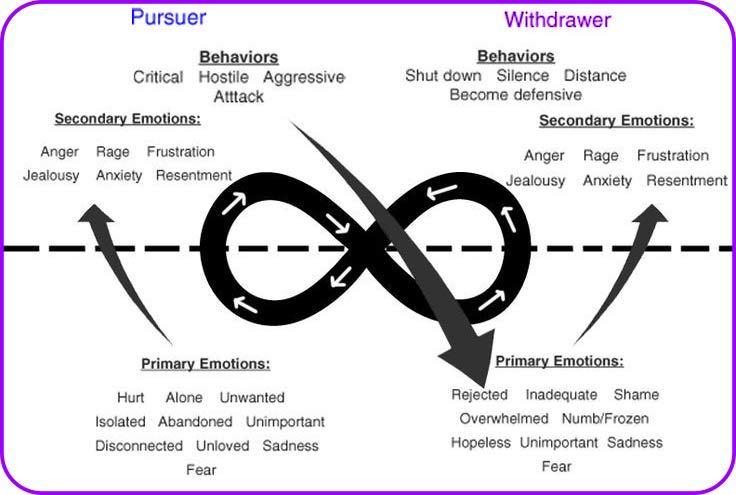A real therapy session & selecting the best Iranian psychologist abroad.
I am Sara Shirazi, 35, from Newmarket Ontario, Canada, with a psychology BA degree.
My husband is 39, has a phD in applied chemistry and we have two children, a boy and a girl, 14 and 10 years old.
You might think I am from shiraz, but no. both my husband and I used to live in Ahvaz.
We moved to Canada 8 years ago for my husband`s education program, and so many problems started when we first got here.
I was not very good at English so I needed to ask for someone`s help every time I went out , but I couldn`t do that so I would try to speak the way I knew, it was so difficult for me that I would go home angry and start complaining…
You might wonder whether psychologists get angry or not, I say we do. Of course I only had my BA and was yet to really enter the world of psychology and had little knowledge about it.
I was going through a tough time and the only person who was there for me was Mehrad. I would complain about the situations we had, the times we couldn`t spend together, the difficulties we were having regarding the kids and so on.
After learning English and getting used to the conditions, our problems regarding migration started to slowly fade but our personal issues went on.
We were arguing and fighting most of the time, it was getting worse and worse until we decided to see an Iranian psychologist (Persian-speaking psychologist).
Even with the little information I had I knew that an Iranian psychologist could help us a lot more than a non-iranian one.
I tried to convince Mehrad to go see a psychologist with me but he wouldn`t agree. He would come up with excuses and ask questions like, what problems do we have that makes you think we need a psychologist? Even if there is any problems, we can solve them ourselves, we know ourselves better and so on…
I looked up Iranian psychologist in Ontario, Canada online and found Purple Life Psychology clinic`s website. I booked an appointment for the next week.
I went to the first session with the clinic`s Iranian psychologist by myself
It was a really good session in my opinion, a lot more different than the sessions I had when I was I iran.
They called their approach the EFT method, I was really curious to see how it works
What was interesting to me is that after hearing what I had to say, at the end of the session, the clinic`s Iranian psychologist said that she needed to hear our life`s story from my husband`s side as well. She said to tell him that we don`t judge people here, we are not judges and we are not looking for someone to blame. She said that she is there to treat our relationship and not us as individuals so she needs to have a one on one session with my husband as well.
When I got home, I was already feeling a lot better, even though it was only one session. I told Mehrad about what the Iranian psychologist told me .
He was surprised that the Iranian psychologist was interested in hearing his point of view of the story.
Anyways, Mehrad finally agreed to go with me the nest week. We went for our session at 4PM the next week. We had an argument in the car about why Mehrad picked up Amir Ali late from school, and as per usual, I got mad and Mehrad got quiet… we ended the argument just before we arrived at the clinic.
We got there and started our session, at the beginning we were faced with our Iranian psychologist`s warm welcoming.
You might wonder why I keep saying Iranian psychologist, I will tell you as we go on.
I could not believe that during the session, Mehrad was the one who talked the most, Mehrad, who was almost always quiet. That Iranian psychologist charmed us with the way she was speaking and the techniques she was using.
After greetings and small talk, the Iranian psychologist asked us about the last argument we`ve had and what led to it and wanted to know about the whole process.
I was the one to talk first;
“When we were in the car, I asked Mehrad about why he had picked Amir Ali late even though I had told him not to do that that morning. You are always so distracted…
And Mehrad kept quiet and the said, how many times have I been late before? Something came up at work and I couldn`t leave early but I left as soon as I could.
And then he continued being quiet and that made me even angrier which led to more complaining…”
After talking about that situation, the Iranian psychologist would go deeper and deeper into why this had happened and why I was the one to complain and Mehrad was the one to stay quiet and vice versa. With the techniques she taught us, we understood the source of our arguments more and more.
Both of us felt heard and understood and like our therapist really knows what we are talking about, she knew about why I was angry before the argument in the car and why I started crying and why Mehrad was quiet or why he would get mad…
The Iranian psychologist said that it is understandable for me to get frustrated and angry when I felt “underappreciated” and started to complain about it. And said that Mehrad gets quiet because he feels “desperate” and hopeless…
Before that, we had no idea that the reasons behind each argument we had were the feelings of being underappreciated and desperate.
These are our actions and the Iranian psychologist said that in the upcoming sessions we will go even deeper into our “hidden” feelings and the actions they lead to.
We moved forward step by step and with every step we learned that behind every action there is a feeling that we could have never recognized from outside.
What our therapist told us at the end of our session was very interesting for us and we agreed with her:
She said that it doesn`t matter what causes tension and what we argue about or who starts it,
What matters is that there is a cycle that happens any time we argue about something and we are stuck inside it every single time.
It may not appear like that from the outside and our arguments might seem different each time, but when it was pointed out to us by our Iranian psychologist we knew that she was right, there is indeed a cycle that we get stuck in every time we fight or argue that keeps repeating itself abd this is what our therapist said:
“every time you enter this cycle, it feels like a storm or a swamp, once you are inside, you can`t find your way out.”
The therapist said that the enemy is not your partner, the enemy is this cycle.
For instance in the example above, the cycle goes like this:
1.When I saw Amir Ali was late
2.i told myself that Mehrad doesn`t care about what I tell him to do
3.i felt unimportant and underappreciated
4.it was then that I started to feel angry
5.and then I started to complain
1.when Mehrad saw me start to complain
2.he told himself that maybe she doesn`t love me which is why she is complaining
3.he started to feel desperate
4.which led him to feeling hopeless
5.and the only thing he could do was to stay uiet.
This keeps repeating itself time after time
When I saw how quiet he was I would complain more
And the more I started to complain, the quieter he would get
The more I would attack, the more he would put his defenses up
And the cycle would happen again.
To the point where I would start crying and he would leave the house.
With the explanations that our therapist gave us we realized why we enter that cycle each time.
We reached the ending of our second session and even though our Iranian psychologist said that we still have a long way to go, we already felt like we`ve made a lot of progress. We realized that nothing is impossible and yes, we might have a lot of problems but with the help of our therapist we will work through them and solve them.
We had a lot of excuses why we shouldn`t go to an Iranian psychology clinic, we falsely believed that these issues were personal, that they could never go away, that if we are not able to fix them ourselves, then a therapist won`t be able to either.
That is until our therapist changed our minds about it, and now with only one session we are a lot closer to healthy relationship and we are more hopeful than ever.
Our Iranian psychologist is from Purple life psychology clinic in Ontario, Canada.
A clinic that works professionally in all therapy areas such as, individuals, couples, family, kids and seniors psychology.
Our Iranian psychologist was thrilled to know that I wanted to write about my experience in therapy with her and asked for my report to be uploaded at their website so that if there is a couple out there hesitant about seeing someone and getting therapy, this report would encourage them to contact a Persian-speaking and Iranian or non-Iranian therapist to receive help in fixing and saving their relationship.
What made me mention Iranian psychologist instead of her name was:
That she asked me to do so because in this clinic everybody is of value and all couples therapists work with the same methods and approaches.
What she and the clinic manager said Is that it takes a lot of time and research and study for someone to become an EFT couples therapist and of course psychologist with an ICEEFT certificate from Canada are qualified to work with this approach.
This is why instead of saying my therapist`s name, I say Iranian psychologist and this shows the humility of the psychologists in this clinic.
If you are interested to learn more about me and Mehrad`s experience in therapy please write down what you think in the comments section and I will be happy to write more about the rest of our therapy sessions.

a word from our expert Iranian psychologists
a report of Sara and Mehrad`s treatment in the last two sessions:
the iranian psychologist in purple life psychology clinic`s couple`s therapy department who works with the EFT method, started an evaluation firs after giving us her warm greetings.
Evaluation is taking the information that a therapist needs from clients before planning out the treatment process.
In couple counseling, after evaluation comes the step of learning about and recognizing the cycle between the couple. The iranian psychologist first wants to learn about the last argument that occurred between the couple and based on that she detects the components which we technically call The dual tempo:
Tempo consists of: (W TEMPO)
(it is done for each person separately)
1.Trigger 2.Emotion 3.Meaning 4.Protection 5.Organizing
The iranian psychologist detects the Tempo with these questions (example):
The behavior of the other person = trigger, for example: the partner`s silence
T
Therapist: how are you feeling right now as you are saying this?
Client: I feel worthless and unimportant
E
Therapist: where in your body are you experiencing this feeling?
Client: I feel a lump in my throat
E
Therapist: what did you thin about yourself or your husband?
Client: I felt like I meant nothing to him. Like, I was not his priority.
M
Therapist: and what did you do?
Client: I started complaining to get a reaction from him and then I started crying.
P
And at the end, all these components are organized together and presented to the couple in order for them to decline or confirm.
O
After completing the tempo by each couple, they realize that the information that is given to them is what creates the cycle. And now we will learn more about the cycle and how to control it.
As the EFT therapist said, this cycle Is often repeated after each fight or argument, no matter the cause of the argument. It just keeps happening and is the main reason behind every argument and why the couple seems to be torn apart. At first, the cycle is created unintentionally (like sara`s frequent questions and mehrad`s silence) and after it happens, both people are left stuck in a series of negative feelings and then it becomes uncontrollable and they start to feel as if they are drowning and it gets worse and worse each time.
By the end of the second session, the EFT iranian psychologist is successful in detecting the cycle and indirectly sets out a plan for the treatment.
The recognition of the cycle will be done by the iranian psychologist in the coming sessions too, only this time it will be practical and not merely explanatory. Also, the understanding of the cycle will go deeper in the coming sessions and more components will be detected. Generally, the components are those of TEM only they will be a lot bolder at this point.
To be continued in the coming posts…

And now we will answer some questions regarding choosing the right iranian psychologist and the approaches they choose.
Why should we see a therapist and visit a psychology center?
Mental issues, if they go longer than normal they start to directly influence our social life, career, education and all aspects of our life in general and this is when they turn into disorders.
Disorders can be caused by simple problems but as time goes on they can be hard to control or ignore and the only solution is to talk to a professional who knows how to deal with them, someone like an iranian psychologist who is an experienced couples counselor.
Depression, anxiety and OCD are three of the biggest mental problems that people are dealing with. And it is likely that most people have had to deal with depression at some point in their life.
In the world of psychology, depression is similar to something like a common cold.
With preventions and early treatments by psychologists and therapists, we can prevent the side effects caused by these disorders from happening.
This is why psychologists and therapists are a must in our everyday life. And everyone should visit a therapist at least once a year to make sure that everything is under control.
How to select an iranian psychologist outside of iran?
The question of how and where to find an experienced and professional iranian psychologist has always been a frequent and important one for our clients that many of them did not have enough information about.
Many people do not have enough information about where and how they could find Persian-speaking psychologists and therapists and when they do, they are unsure as to what information they need to get from a therapist in order to know that they are qualified to help them.
Here are some steps that most people take when trying to find iranian psychologists and therapists
- googling words such as: the best iranian psychologist, the best iranian therapist, the most famous iranian psychologist, iran`s most known psychologists, the best Persian-speaking psychologist, Persian-speaking psychologist and etc.
- ask friends and relatives for help
- pay attention to commercials on social media
- the basic and simple way to find an experienced and professional iranian psychologist:
1.make sure that the therapists and psychologists you choose have a therapist for themselves. Technically we call it a supervisor.
A professional psychologist should have his or her own therapist so that when they feel an inner problem occurring during or after a client`s therapy session they know how to control and solve it so that it does not interfere with the client`s treatment.
2.the chosen psychologist should have an approach or method that they are known for using during treatments. In the descriptions below you will see some of the most commonly used approaches by iranian and non-iranian psychologists. In order to move forward with the treatment, psychologists need to consider a protocol (a plan for the treatments), this protocol is different from one approach to the other, but it is necessary that a psychologists take the session based on a specific plan and continue with it until the last sessions.
3.the chosen psychologist should have international and academic degrees and certificates.
Having international degrees is not a must, but we should keep in mind that international degrees are not given for brief and small courses, this degree is given to psychologists only after they have passed multiple practical and empirical courses and have been 100% educated and active in these courses. They also go through multiple tests to make sure that they are qualified enough to be international therapists and psychologists and that the mistakes that are done in the therapy room are brought to the lowest points possible. This in itself needs years and years of education to be achieved.
4.check the statistics and success rate of the approach and method that the psychologist or therapist uses. It is important that before booking any appointments with an iranian psychologist, you ask about the approach they use with their clients and then you can easily see the success rate of that approach by looking it up online.
Down below, we will mention some of the most common approaches with the highest success rate in and out of iran.
Choosing the approach suitable for you, among the other approaches used by iranian psychologists and therapists:

1.emotional focused therapy (EFT):
This approach with Susan Johnson`s model, is a new and novel approach in iran. In this approach the iranian psychologist and therapist focuses on the client`s both casual and deep emotions and considers them as the factor of the person`s behavior. In this approach, it is believed that being unaware of or ignoring one`s negative emotions can cause a lot of mental issues. In this method, the psychologist helps the clients to really learn about and recognize their own, and the other person`s feelings, emotions and needs and teaches them how to express those emotions in a safe space, with their therapist, partner or anyone else who might not even be present in the session and recognize them as a part of their being.
2.cognitive behavioral therapy (CBT):
The most commonly used approach by iranian and non-iranian psychologists and therapists is cognitive-behavioral therapy. This approach focuses on thoughts and behavior, and in this approach it is believed that by changing one`s beliefs, thoughts and actions we can solve their problems. In this approach, it is important to do every task that the psychologist asks you to do.
3.scheme therapy:
In this approach, the psychologist focuses on the pattern that are created in our childhood and form the way we view the world. Because we see the world through those patterns, it can limit our potentials and cause some issues along the way. And just like CBT, in this approach too, the therapist focuses on fixing the problems and issues that the client in currently going through.
4.transactional analysis (TA):
In this approach, the Iranian psychologist analyzes three aspects, the inner child, inner parent and inner adult. A transactional analysis therapist focuses on the past and future. The sessions are usually shorter than psychoanalysis sessions but longer than scheme therapy sessions. In this approach, the therapist`s goal is to help the client reach the highest level of acceptance they can, to be in peace with themselves and the world and to eventually reach the level of “I`m okay, everyone`s okay.”
5.acceptance and commitment therapy (ACT):
The iranian psychologist`s focus in this method, revolves around acceptance and commitment. In this method, the goal is that clients internally accept the event that have happened to them, especially the undesirable ones, and to not deny them and judge themselves for them. The iranian psychologist`s goal is to get the client to regain positive feelings about himself. This goal is achieved by commitment and changed behavior with the help of the therapist.
6.psychoanalysis:
A psychologist in psychoanalysis and psychotherapy, treats clients based on their subconscious thoughts and beliefs. Thoughts that have developed from a person`s childhood and are effecting his or her behavior in the present.
The resources to psychoanalysis approach come from Sigmund Freud`s theories. He believed that becoming aware of our subconscious thoughts and motives and gaining perspective was the way to heal. In psychoanalysis it is believed that people have subconscious thought, emotions, desires and memories and all mental issues are connected to them.
The iranian psychologist`s goal in this approach is to rid the client of suppressed feelings and experiences.
7.intensive short-term dynamic psychotherapy & division of short-term dynamic psychotherapy (ISTDP & DISTDP):
Intensive short-term dynamic psychotherapy is an approach that focuses on emotions. This approach is designed to treat deep emotional issues.
In this approach, the iranian psychologist helps the client to change his or her behavior in order to achieve the change they want in themselves.
8.behavioral therapy:
The goal for a behavioral therapist is to detect destructive and unhealthy behaviors. The believe in this approach is that people either copy other people`s behaviors or they learn fro them.
Purple life psychology clinic`s iranian psychologist`s approach for couples and individual counseling is the EFT approach.

Why the EFT approach for therapy?
1.according to the American APA, EFT is the most effective approach for couples therapy worldwide.
With 75% successful cases. and if we want to take the progress and overall effectiveness into consideration, this number can go up to 95%.
2.two or three times more effective than any other therapy approach out there.
3.the percentage of the cases who started to face the same issues they did before therapy is 0% for years after.
Sue Johnson`s EFT approach is a completely practical approach and this is the reason for its high percentage of successful cases. The protocols in this approach go through changes yearly as the number of studies and researches rise and it is constantly being updated.
The method of the iranian psychologist in this approach is also practical. Anything that the clients learn in their sessions, was felt and seen by them practically with the help of the therapist.
An example for the practicality of this approach:
For example, if a clients points out to their fear of being alone during a session, they will deeply experience it during the session and say, “right now I am feeling cold and suffocated, my face is freezing…” they start to breathe heavily and the signs of fear start to show up, they might paint a picture of being stuck in a cold and dark place to the therapist with nowhere to run.
This is only a small part of goes on I iranian psychologist`s office who works with this approach. The clients does not point to something briefly like, feeling afraid of being left alone by their partner after going through a fight, but they actually feel it deeply and experience it in the session.

What kind of problems is EFT suitable for?
Emotional focused therapy with a vision beyond any problem, is suitable for all mental issues. Psychologists in this approach, do not categorize problems based on DSM and are not seeking symptoms to diagnose clients.
What are the problems that should not be treated by EFT?
Depending on the therapist`s decision, ongoing cheating and betrayal, ongoing addictions and violence are things that should not be treated with EFT; but there are always exceptions and it all depends on the therapist.
What are the 9 steps and 3 phases in EFT?
The iranian psychologist on Purple life psychology clinic, takes these steps and this treatment plan from start to finish.
- Stage I: De-Escalation
- Step 1: Alliance & assessment
- Step 2: Identify negative cycle & attachment issues
- Step 3: Access underlying attachment emotions
- Step 4: Reframe the problem – cycle, attachment needs & fears
- Stage II: Restructuring the Bond
- Step 5: Access implicit needs, fears, models of self
- Step 6: Promote acceptance by other – expand the dance
- Step 7: Structure reach & respond – express attachment needs & create new bonding interactions
- Stage III: Consolidation
- Step 8: Facilitate new solutions
- Step 9: Consolidate new positions, cycles, stories of secure attachment
An example for a negative communication cycle:

A video for controlling the negative communication cycle:
You can book an appointment through our website or make a quick booking via our Whatsapp through the clinic`s secretary Somayeh Ghermezi.

Leave your questions in the box below!
We welcome you with open arms
